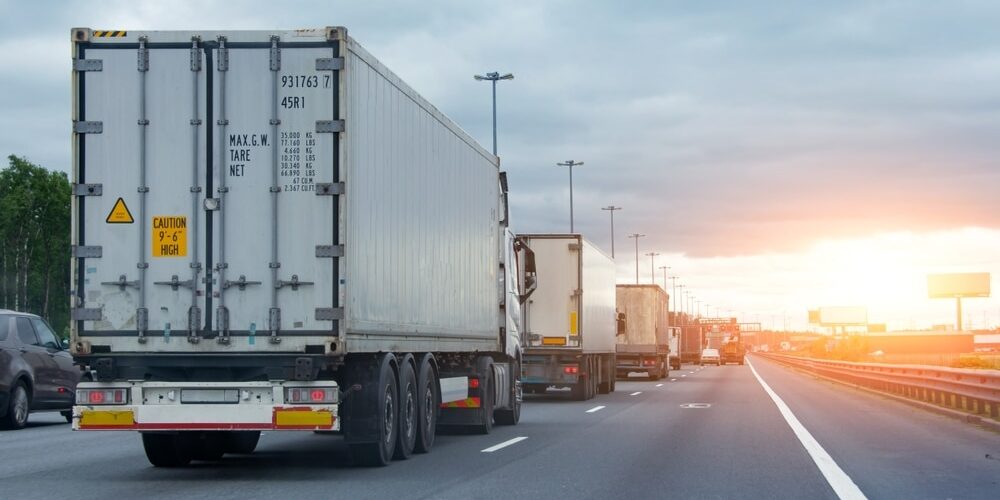When it comes to commercial truck insurance, understanding the specifics of each type of coverage is crucial. Every trucking professional must comprehend two essential coverages: liability insurance and physical damage coverage. Although both coverages are vital in protecting your trucking operation, they differ significantly in terms of what they cover and their legal requirements. At RJS Truck Insurance Services, we’re dedicated to helping trucking businesses navigate these complexities. This comprehensive guide will detail the differences between liability and physical damage coverage, helping you make informed decisions about protecting your fleet.
Importance of Knowing the Difference
Misunderstanding these coverages could leave your business vulnerable to costly gaps in protection. Liability coverage is mandatory by law and primarily protects third parties, while physical damage coverage safeguards your property and trucks. Both are integral but distinct parts of comprehensive trucking insurance.
What is Liability Coverage?
Liability coverage is legally required for all commercial trucks and is intended to cover the damages your vehicle causes to others. This coverage doesn’t protect your truck but addresses financial responsibilities for third-party losses in accidents where you are at fault.
Types of Liability Coverage
- Bodily Injury Liability:
- Covers medical expenses, pain and suffering, and lost wages for others injured in an accident caused by your truck.
- Property Damage Liability:
- Covers repair or replacement costs for property damaged by your vehicle, including vehicles, structures, or other personal property.
Regulatory Requirements
The Federal Motor Carrier Safety Administration (FMCSA) mandates minimum liability coverage, typically requiring at least $750,000 to $1,000,000, depending on the type of cargo transported.
Benefits of Liability Coverage
- Legal Compliance: Ensures compliance with state and federal regulations.
- Financial Security: Protects your business from significant financial liabilities due to accidents.
- Enhanced Credibility: Builds trust with clients and industry partners by demonstrating compliance and responsibility.
What is Physical Damage Coverage?
Physical damage coverage is not legally required, but it is strongly recommended. It specifically covers damage or loss to your trucks, regardless of fault, protecting your primary business asset against various risks.
Types of Physical Damage Coverage
- Collision Coverage:
- Covers damages to your vehicle resulting from collisions with other vehicles or objects.
- Comprehensive Coverage:
- Covers damages from non-collision incidents, including theft, vandalism, natural disasters, and fire.
Benefits of Physical Damage Coverage
- Asset Protection: Safeguards your investment in your vehicles.
- Operational Stability: Minimizes downtime by ensuring quick repair or replacement.
- Financial Predictability: Reduces unexpected out-of-pocket expenses for repairs or replacements.
Key Differences Between Liability and Physical Damage Coverage
Coverage Scope
- Liability Coverage: Protects third-party interests and does not cover your property or truck.
- Physical Damage Coverage: Specifically covers your trucks against damage, regardless of fault.
Legal Requirements
- Liability Coverage: Federally mandated.
- Physical Damage Coverage: Optional but highly recommended for comprehensive asset protection.
Financial Impact
- Liability Coverage: Essential for avoiding significant financial liabilities from claims.
- Physical Damage Coverage: Crucial for protecting your business from significant repair or replacement costs.
Practical Examples
Understanding these coverages through real-world examples highlights their importance:
- Scenario 1 (Liability): Your truck accidentally hits another vehicle, causing bodily injury and vehicle damage to the third party. Liability insurance would cover the affected party’s medical bills and property damage.
- Scenario 2 (Physical Damage): Your truck is vandalized or involved in a collision, causing severe damage. Physical damage insurance would cover the cost of repairing or replacing it.
Choosing the Right Coverage for Your Trucking Business
To effectively protect your trucking business, consider the following:
- Evaluate the types of risks associated with your operations.
- Assess your financial capability to manage potential losses.
- Consult with a specialized insurance provider, such as RJS Truck Insurance Services, to ensure comprehensive coverage tailored to your needs.
Tips to Reduce Your Insurance Premiums
Here are practical strategies to help manage your insurance costs effectively:
- Maintain Clean Driving Records: Encourage safe driving habits among your drivers.
- Enhance Vehicle Safety: Equip your fleet with safety features like dashcams and telematics.
- Increase Deductibles: Opting for higher deductibles can lower your premium, but ensure the deductible amount is manageable.
- Regular Policy Reviews: Periodically review your coverage to adjust to operational changes and avoid unnecessary expenses.
Why Choose RJS Truck Insurance Services?
Partnering with RJS Truck Insurance Services gives you access to specialized expertise in trucking insurance:
- Customized Insurance Plans: Coverage explicitly tailored to your trucking business.
- Expert Industry Guidance: Decades of experience in trucking insurance and regulatory compliance.
- Exceptional Customer Support: Efficient claims handling and personalized service to ensure your business remains fully protected.
Final Thoughts
Correctly understanding and selecting the right insurance coverages is essential for your trucking operation’s sustainability and growth. Let RJS Truck Insurance Services help you navigate options and secure your business assets effectively.
Call (800) 366-0664 or visit our website today for a comprehensive insurance consultation tailored to your needs!
Frequently Asked Questions
- Is liability coverage enough for my trucking business?
Liability coverage is legally required, but it doesn’t cover damages to your truck. Combining liability coverage with physical damage coverage is highly recommended to protect your investment fully. - Can I purchase physical damage coverage separately?
Yes, physical damage coverage can be purchased independently, but bundling it with liability insurance for comprehensive protection is often cost-effective. - What determines the cost of liability and physical damage insurance premiums?
Insurance premiums are influenced by factors such as driving records, truck type and value, cargo type, operational areas, deductible levels, and the fleet’s safety management practices.






